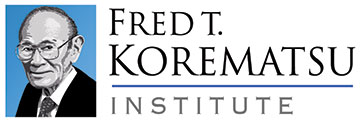Statement on Arab American Heritage Month
Today Arab American Heritage Month begins and the Fred T. Korematsu Institute pays tribute to the rich history, culture, and contributions of Arab Americans. While the first major documented period of Arab immigration to the United States started in the early 1880s with early residents coming from the Ottoman Empire, people from 22 different Arabic-speaking countries in North Africa and the Middle East make up the diverse community today. Much like other immigrants, people from Arabic-speaking countries were caught up in the discriminatory policies of immigration quotas that preferred immigrants from northern and western European countries in the early 20th century.
Like almost every other group that came to the United States, their travels were often spurred by forces outside of their control like famine or politics, and sometimes just a desire to find opportunity and a fresh start for themselves and their families. After World War II, the doors at Ellis Island opened for refugees and skilled workers in fields like engineering and science, and the eventual removal of the quota system led to more immigration from countries around the world. According to the 2020 U.S. Census, there are approximately 3.5 million people from Arab nations in the U.S.* And since their arrival, Arab Americans have played a part in every aspect of American life from politics to economics to education to journalism to entertainment to technology.
The waffle cone. The iPod. The tech behind your LCD screen. The patent and technology behind your LCD screens were developed by Hassan Kamel Al-Sabbah. Inventor Anthony “Tony” Fadell is known as “the father of the iPod” and the first iPhone. While there are four origin stories about the invention of the waffle cone, the low-tech delicious mode of ice cream transportation, they all, the iPod and LCD screen included, feature Arab American creators.
While the iPhone and the waffle cone are wondrous things, these are just a few of the many reasons why the Korematsu Institute advocates for ethnic studies curricula in all 50 states. We are ALL part of the American story from drafting new legislation to play a pivotal role in our history to creating a portable dessert. And until we include the contributions and stories of Arab Americans, Asian Americans, African Americans, and Indigenous people in our classrooms, we need to work to share those important contributions and moments of our shared history. Prejudice is rooted in ignorance. And the first step to combat that ignorance is education. We are all in this together. This month, and every month, we hope you will learn more and honor the people, culture, and contributions of our Arab American friends and neighbors.
* The U.S. Census does not have a designation for Arab American and offers a race write-in option under the White racial category. Read more here: https://shorturl.at/xGJK3
Learning for Justice has put together some resources to help educators celebrate Arab identity, culture, and history, counter negative stereotypes, and explain the importance of the inclusion of Arab voices and stories in the classroom. Learn more: https://bit.ly/3K2CoWq
